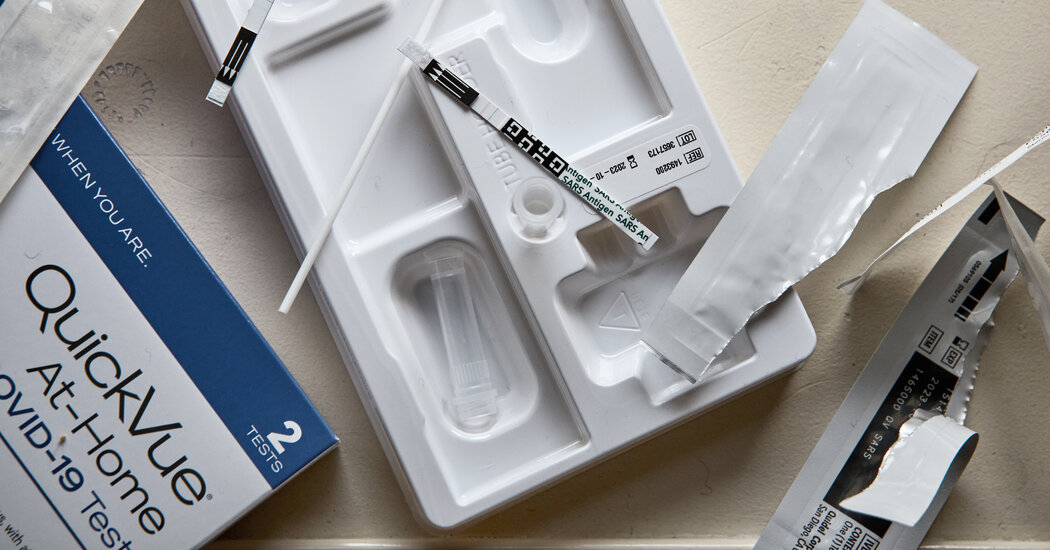
“If you can’t get tests, you have to decide how much risk you’re willing to take,” said Dr. Robert Wachter, professor and chairman of the department of medicine at the University of California, San Francisco. “Would I still get together if I couldn’t find a test? In a relatively low risk situation, with everyone boosted and vaccinated and everyone feels fine, I probably would. If someone is at high risk and I couldn’t get a test, I think I’d be inclined to have people wear masks and keep the windows open. I’d do the best I could to keep everyone as safe as possible.”
Timing of Tests
When is the best time to test if I was exposed to an infected person?
Omicron moves fast, and many public health experts say people with potential exposures to the virus should test sooner than advised for previous variants. The current guidance from the Centers for Disease Control and Prevention says vaccinated people don’t have to quarantine if they have had close contact with someone who has Covid-19, but that they should get tested five days later. Testing experts, however, say that’s probably not soon enough for Omicron.
A recent outbreak of Omicron Covid infections in Norway after a holiday office party in November gives us clues about the best time to test based on how quickly an Omicron exposure can “convert” to an infection, said Dr. Wachter. The party was held in a restaurant on a Friday, and everyone was vaccinated. Of 80 confirmed and suspected cases, nearly 75 percent were detected on the Sunday, Monday and Tuesday after the party. That suggests that the best times to test are on days 2, 3 and 4 after exposure.
So if you think you’ve been exposed to an infected person, or you’ve been traveling through airports and are worried that you picked up the virus, the best time to start testing is probably on day 2 and 3 after the event. If you can, test daily or every other day at least through day 6. And if you know you were exposed to an infected person, it’s a good idea to limit your contacts and mask up around others for about a week after the exposure.
Is it possible to test too early?
Yes. Don’t test immediately after an exposure or high-risk gathering and assume you are in the clear, since it can take a few days for the virus to reach detectable levels. “Doing it too soon is like a pregnancy test,” said Dr. Panagis Galiatsatos, a pulmonary and critical care medicine physician at Johns Hopkins Medicine. “If you test too soon, it means nothing.”
The advice changes if you already are experiencing Covid symptoms. In that case, you should get tested right away. Try taking a rapid test on the day symptoms start, and if that’s negative, take another test a few days later.
When should you retest if your first test is negative?
If your first test is negative after you’ve had a known exposure (or attended a high-risk gathering), you should test again two or three days later, taking precautions in the interim.




